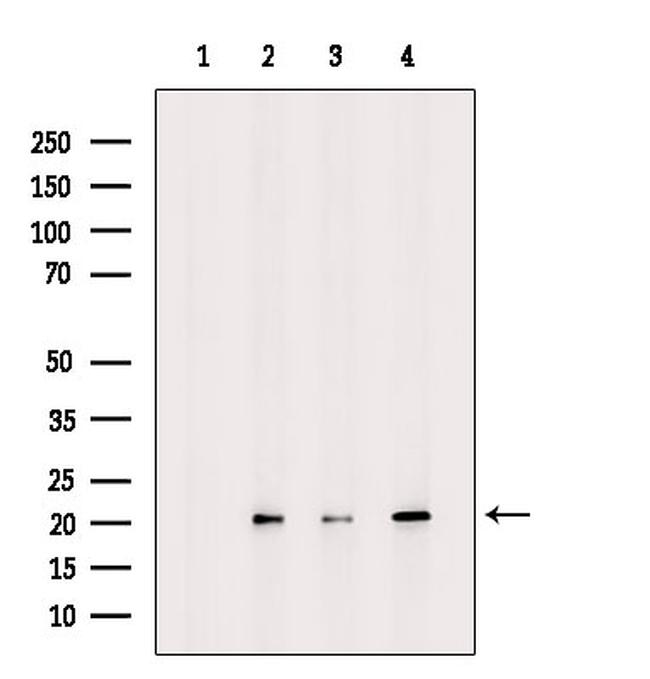Search Thermo Fisher Scientific
Product Details
PA5-116099
Species Reactivity
Host/Isotype
Class
Type
Immunogen
Conjugate
Form
Concentration
Purification
Storage buffer
Contains
Storage conditions
Shipping conditions
RRID
Product Specific Information
Antibody detects endogenous levels of total UBE2G1.
Target Information
The modification of proteins with ubiquitin is an important cellular mechanism for targeting abnormal or short-lived proteins for degradation. Ubiquitination involves at least three classes of enzymes: ubiquitin-activating enzymes, or E1s, ubiquitin-conjugating enzymes, or E2s, and ubiquitin-protein ligases, or E3s. UBE2G1 is a member of the E2 ubiquitin-conjugating enzyme family. The encoded protein shares 98-100% sequence identity with the zebrafish, frog, rat and mouse counterparts, which indicates that this enzyme is highly conserved in eukaryotes.
For Research Use Only. Not for use in diagnostic procedures. Not for resale without express authorization.
References (0)
Bioinformatics
Protein Aliases: E2 ubiquitin-conjugating enzyme G1; E217K; UBC7; ubiqu; Ubiquitin carrier protein G1; ubiquitin conjugating enzyme E2G 1; Ubiquitin-conjugating enzyme E2 G1; ubiquitin-conjugating enzyme E2G 1 (homologous to C. elegans UBC7); ubiquitin-conjugating enzyme E2G 1 (UBC7 homolog, C. elegans); ubiquitin-conjugating enzyme E2G 1 (UBC7 homolog, yeast); ubiquitin-conjugating enzyme UBC7; Ubiquitin-protein ligase G1
Gene Aliases: 2700059C12Rik; AI256795; AU014992; AW552068; D130023C12Rik; E217K; UBC7; UBE2G; UBE2G1
UniProt ID: (Human) P62253, (Mouse) P62254, (Rat) P62255
Entrez Gene ID: (Human) 7326, (Mouse) 67128, (Rat) 64631

Performance Guarantee
If an Invitrogen™ antibody doesn't perform as described on our website or datasheet,we'll replace the product at no cost to you, or provide you with a credit for a future purchase.*
Learn more
We're here to help
Get expert recommendations for common problems or connect directly with an on staff expert for technical assistance related to applications, equipment and general product use.
Contact tech support

